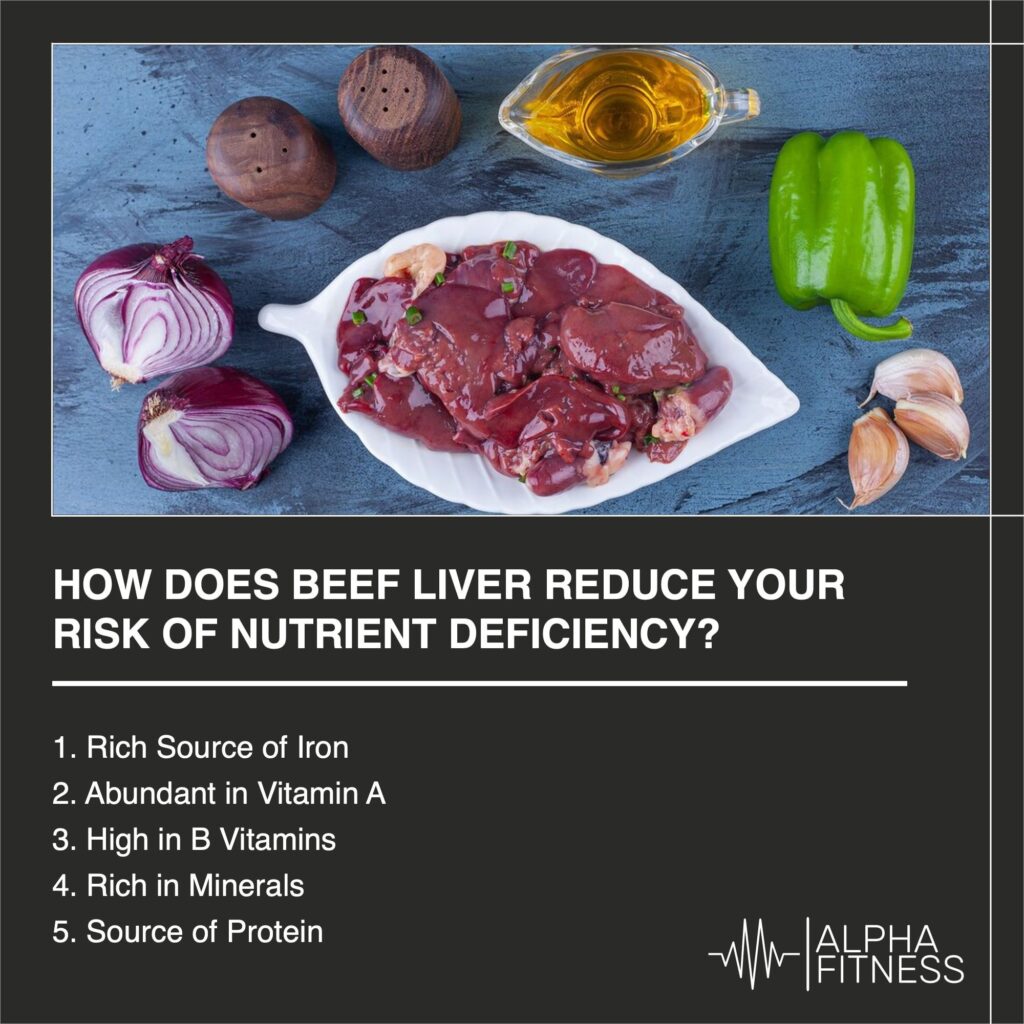
Below is a list of useful links:
- Fiber in oat bran helps reduce cholesterol
- Here are some good Vitamin C diets.
- How does beef liver reduce your risk of nutrient deficiency?
- Corn contains nutrients including fiber and vitamin C
- Cocoa contains flavonoid that help in preventing blood clots
Beef liver is often praised for its nutritional density and its ability to reduce the risk of nutrient deficiency. It is considered one of the most nutrient-rich foods available, packed with various essential vitamins and minerals that play vital roles in maintaining overall health. Here’s how consuming beef liver can help reduce the risk of nutrient deficiency:
Rich Source of Iron: Beef liver is exceptionally high in heme iron, which is the type of iron found in animal-based foods. Iron is essential for the formation of red blood cells and the transport of oxygen throughout the body. Regular consumption of beef liver can help prevent iron-deficiency anemia, a condition characterized by fatigue, weakness, and reduced cognitive function due to insufficient iron levels.
Abundant in Vitamin A: Beef liver is one of the best dietary sources of vitamin A, particularly in the form of retinol. Vitamin A is essential for maintaining healthy vision, skin, and the immune system. It also plays a crucial role in the proper functioning of organs such as the heart, lungs, and kidneys.
High in B Vitamins: Beef liver is a rich source of various B vitamins, including B1 (thiamine), B2 (riboflavin), B3 (niacin), B5 (pantothenic acid), B6 (pyridoxine), B9 (folate), and B12 (cobalamin). These vitamins are involved in a wide range of metabolic processes, including energy production, DNA synthesis, and the functioning of the nervous system. Consuming beef liver can help prevent deficiencies of these essential B vitamins.
Rich in Minerals: Beef liver contains important minerals like zinc and copper. Zinc is crucial for immune function, wound healing, and maintaining healthy skin, while copper plays a role in the formation of connective tissues and red blood cells. Regular intake of beef liver can help ensure adequate levels of these minerals.
Source of Protein: Beef liver is a good source of high-quality protein, which is essential for muscle growth, repair, and overall tissue maintenance. A diet with sufficient protein can prevent protein deficiency and support various bodily functions.
While beef liver offers numerous nutritional benefits, it’s important to consume it in moderation. High intake of liver, due to its high levels of certain nutrients like vitamin A, can lead to vitamin A toxicity, which can have adverse health effects. It’s recommended to enjoy beef liver as part of a balanced diet and consult with a healthcare provider or nutritionist to determine the appropriate portion size and frequency of consumption based on your individual dietary needs and health status.




One thought on “How does beef liver reduce your risk of nutrient deficiency?”